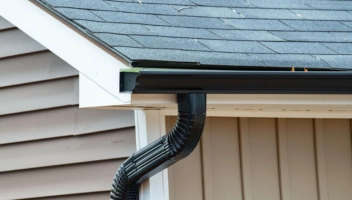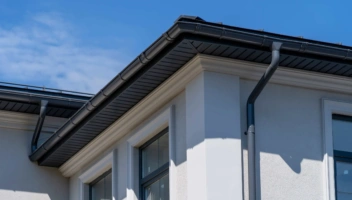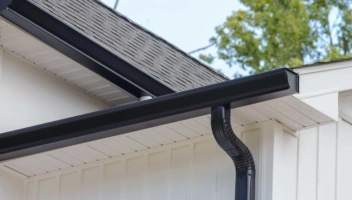Why are my Gutters Leaking? 5 Signs of a Leaking Gutter
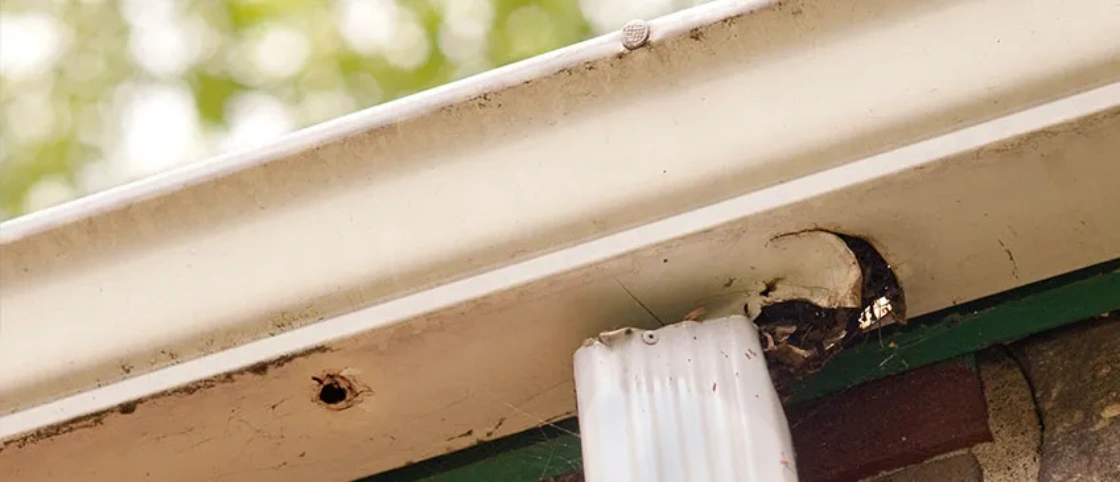
Addressing leaking rain gutters with tips and tricks to stop water damage to your home
When was the last time you examined your gutters for leaks and damage? Like many homeowners, you might only think about them once there’s a problem. However, neglecting your gutters can lead to costly home damage due to water entering areas it shouldn’t. Leaky gutters are among the most harmful issues, from ruining your siding, soffit, and fascia to seriously damaging your roof and foundation. At LeafFilter, we recommend regular inspections to ensure your gutters perform optimally. Here are the most common causes of gutter leaks and what to look for.
5 Causes of Leaking Gutters
Certain geographic areas with heavy rainfall and snow are more susceptible to gutter clogs and damage due to factors like high winds and dense foliage. Regular maintenance is crucial to prevent leaks and ensure your gutter system functions properly. Here are some common causes to consider:
1. Clogged Gutters
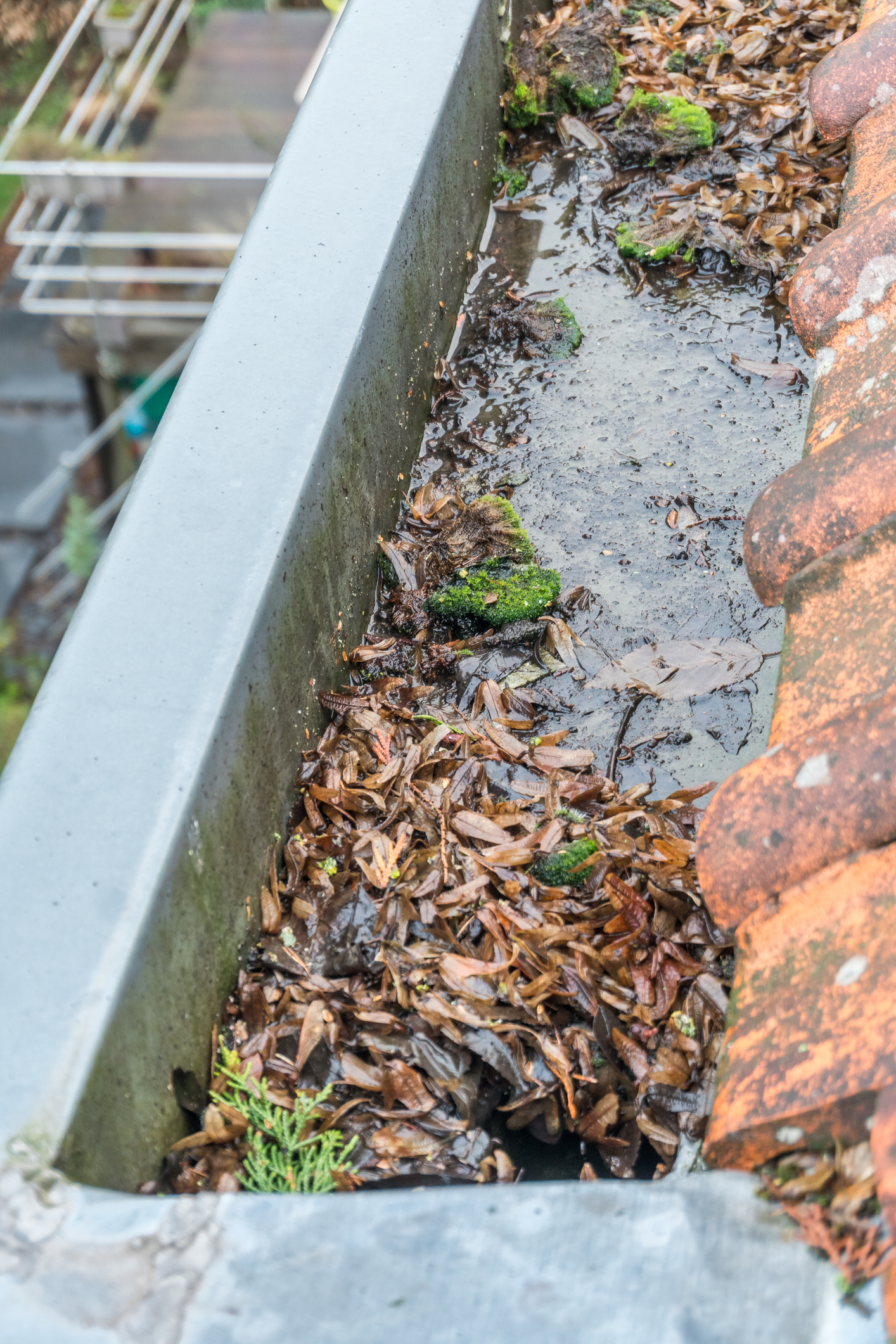
Clogs are the most common cause of leaking gutters. Debris, such as leaves, twigs, and dirt, can accumulate in gutters, obstructing water flow and leading to overflows and leaks. When water cannot flow properly, it runs over the sides of your gutters, dripping down your siding and pooling around the base of your home. Pooling water can result in foundation damage, rotting wood, and basement flooding.
Keeping your gutters clear of debris is essential to preventing these issues. It is recommended that you clean your gutters regularly, at least twice a year.
2. Cracks, Holes & Gaps

Wear and tear or external damage can cause cracks, holes, and gaps in your gutters, allowing water to escape and potentially damage your home’s structure. These often start as small cracks and minor leaks but can become a bigger problem if not addressed early.
Gutters must be free of holes and gaps to function effectively. Over time, corrosion may require gutter repair or replacement. Smaller holes can be filled with caulk or waterproof sealant, while more serious damage might necessitate replacing entire sections.
3. Loose Hangers
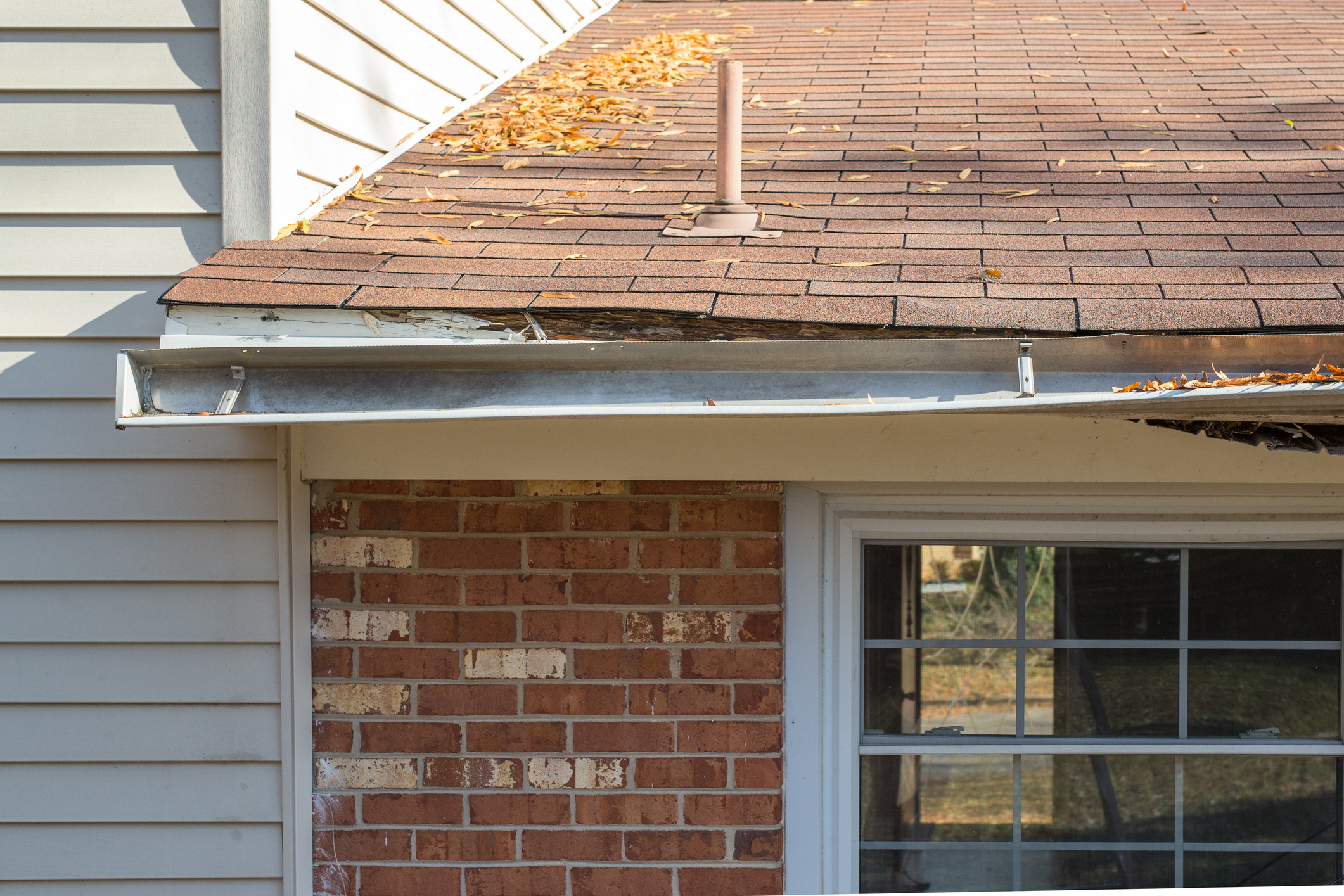
Hangers that secure your gutters can become loose over time, causing the gutters to sag and leak at the points of detachment. This is typically due to bolts, screws, and other fasteners rusting or loosening over the years. Most gutters are secured to your home’s fascia board with internal hidden hangers, which can become loose due to heavy winds, debris buildup, or improper installation. As a result, the runoff water can flow over the rear edge of your gutters, damaging your fascia boards. If you’ve noticed leaking gutters, loose fasteners may be the culprit. It’s vital to ensure your gutters have the proper slope toward the downspouts—about ¼-inch every 5 to 10 feet.
4. Improperly Pitched Gutters
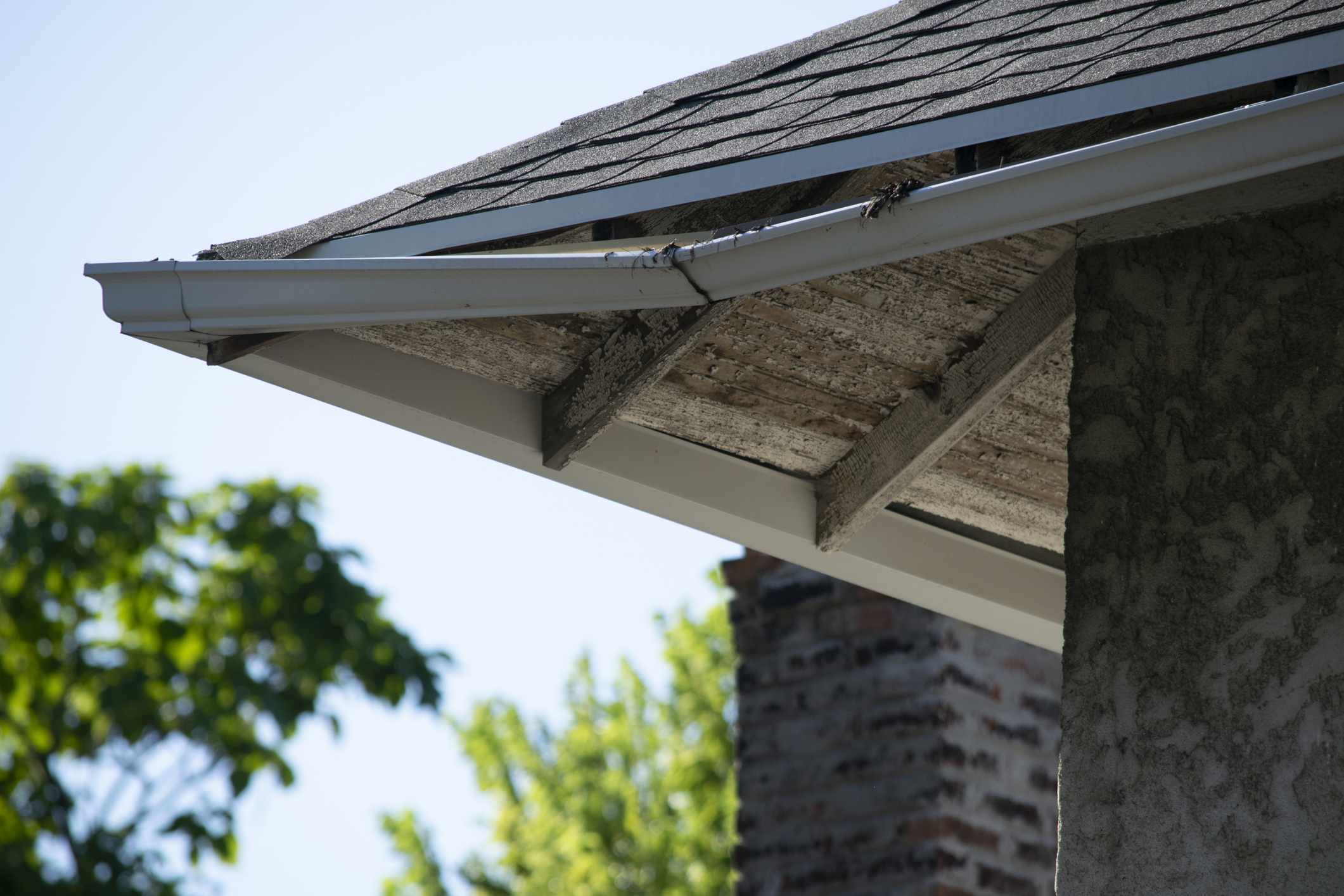
Gutters must be installed with a slight slope to ensure water flows properly away from the home. Properly pitched gutters allow water to flow easily toward downspouts, preventing pooling and potential damage. However, if the pitch is incorrect, gutters can sag in certain spots, leading to rust, corrosion, and failed sealants. Additionally, gutters can loosen over time and become misaligned due to heavy winds, debris buildup, or improper installation. Clogged gutters may also result from improper pitch.
Realigning your gutters will allow water to flow toward your downspouts, but this task often requires more work than typical DIY gutter maintenance. It’s advisable to have a professional determine whether you need to adjust the pitch or re-hang the entire gutter section.
5. Separated Joints
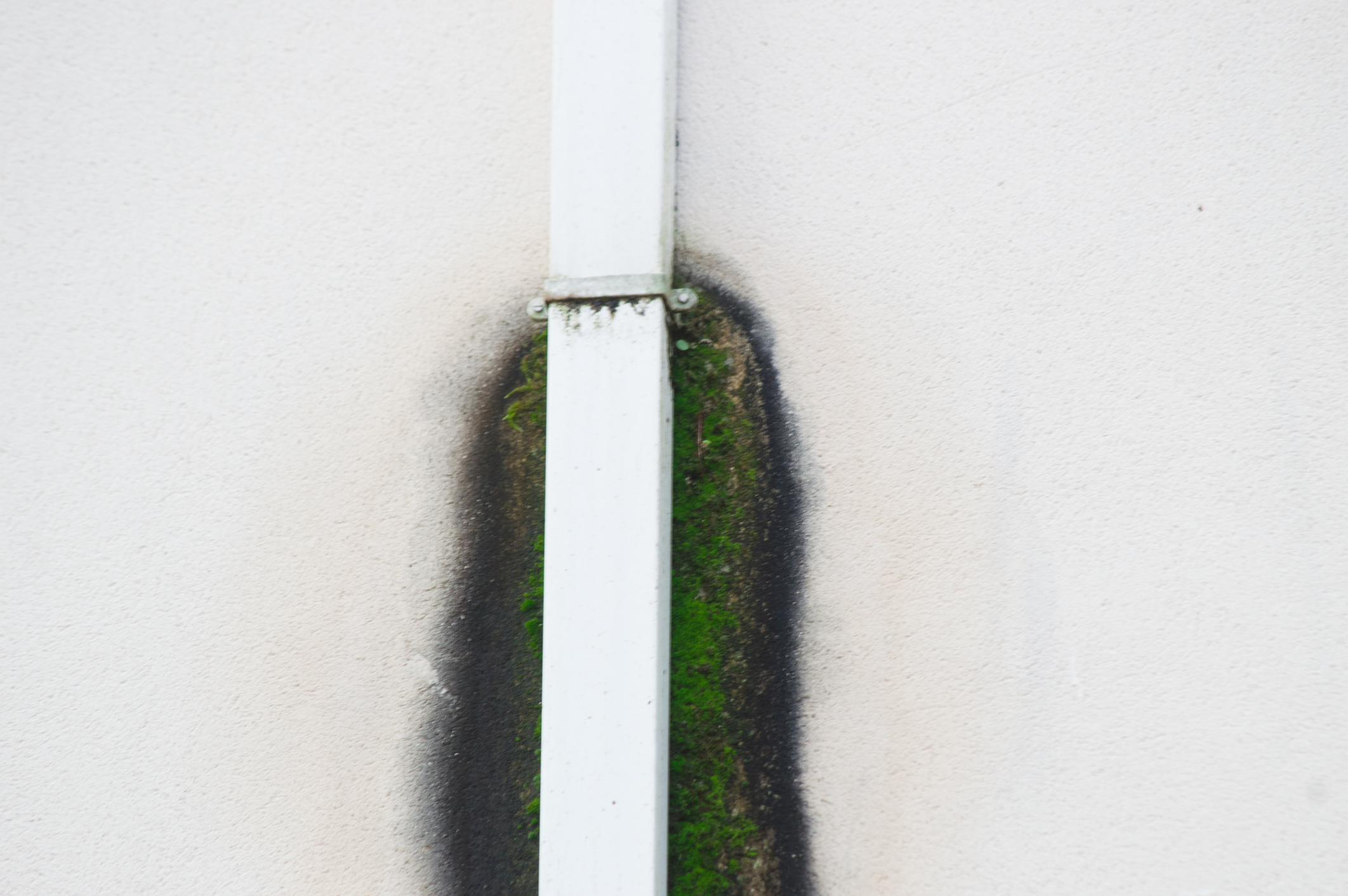
Signs of Leaking Gutters
Regardless of the type of gutters you have, all systems are susceptible to leaks and standard wear-and-tear. Recognizing the signs of leaking gutters early can save you from costly repairs. Look for the following indicators:
- Water stains on siding or walkways: Persistent leaks can leave unsightly stains, indicating that water is not properly diverted from your home. This can also be a sign of gutter misalignment or blockage.
- Dampness in the basement: Water seeping into your basement often points to leaking gutters, allowing rainwater to pool around the foundation. This can lead to structural damage and create an environment conducive to mold growth.
- A musty smell in the home: A musty odor inside your house can suggest water infiltration and poor ventilation. Leaking gutters can cause moisture buildup, leading to this unpleasant smell.
- Mold growth inside and outside: Leaks encourage mold growth, which poses health risks and can damage walls, ceilings, and insulation. Mold thrives in moist environments, often created by water escaping from faulty gutters.
- Puddles around the foundation: Water pooling around your home’s base can weaken the foundation over time, making it prone to cracking and instability. Leaking gutters are a common source of these puddles, especially during heavy rainfall.
- Cracks or peeling paint: Prolonged exposure to moisture from leaking gutters can damage interior and exterior paint, causing it to crack or peel. This damage can indicate underlying moisture problems that need to be addressed.
Inspecting Your Gutter System
Regularly inspecting your gutter system helps identify and address the cause of the leak before it escalates. You can perform a basic inspection by looking for visible signs of damage and ensuring water flows freely through the system. These include checking for sagging gutters, clogged downspouts, and any signs of water damage or rust. You can also use a garden hose to simulate rainfall and check for leaks or blockages. If you notice any issues during your inspection, it’s best to contact a professional for further assessment and repairs.
For a step-by-step guide, refer to our article on how to inspect your gutters.
Solve Leaky Gutters With the Help of LeafFilter
Addressing leaking gutters is crucial to preventing home damage. While DIY repairs can tackle minor issues, ensuring safety and adhering to homeowner insurance stipulations is paramount. For a lasting and reliable solution, consider professional gutter replacement with LeafFilter. Our team will expertly assess, repair, and optimize your gutter system, providing peace of mind and protecting your home for years to come.
Learn more about LeafFilter and request a no-obligation free estimate today!
Frequently asked questions
What damage can a leaking gutter cause?
Leaking gutters can cause significant home damage. Water escaping from gutters can seep into the foundation, causing cracks and weakening the structural integrity of your home. It can also lead to mold growth inside and outside, posing health risks and damaging walls, ceilings, and insulation. Additionally, leaks can cause water stains on siding and walkways, peeling paint, and dampness in basements.
What is the best way to seal a leaking gutter?
The best way to seal a leaking gutter is to first clean it, removing any debris or dirt. Then, identify the source of the leak. For small holes or gaps, apply a high-quality gutter sealant directly to the affected area. For larger holes, use a patching kit designed for gutters. Ensure that the sealant or patch is applied evenly and according to the manufacturer’s instructions for the best results.
How much does it cost to fix a leaking gutter?
The cost to fix a leaking gutter can vary depending on the severity of the damage and the type of repair needed. On average, minor repairs, such as sealing small leaks, can cost between $75 and $175. More extensive repairs, including replacing sections of the gutter, might range from $200 to $600. A professional assessment is recommended for the most accurate estimate.
Why do my gutters overflow in heavy rain?
Gutters typically overflow in heavy rain due to blockages caused by debris like leaves, twigs, and dirt. These blockages prevent water from flowing freely, causing it to spill over the sides. Another reason could be an insufficient gutter size, which cannot handle the volume of water during heavy downpours. Regular maintenance and ensuring your gutter system is appropriately sized can help prevent overflow.
Is a leaking gutter an emergency?
While a leaking gutter may not always seem like an immediate emergency, addressing it promptly is crucial to prevent more severe damage. Prolonged leaks can lead to foundational issues, mold growth, and interior water damage. Early intervention can save you from costly repairs and preserve the structural integrity of your home. If you notice significant leaks or related damage, consider it a priority to fix them as soon as possible.
